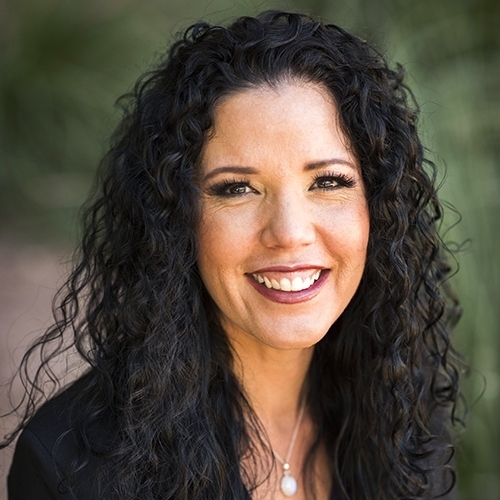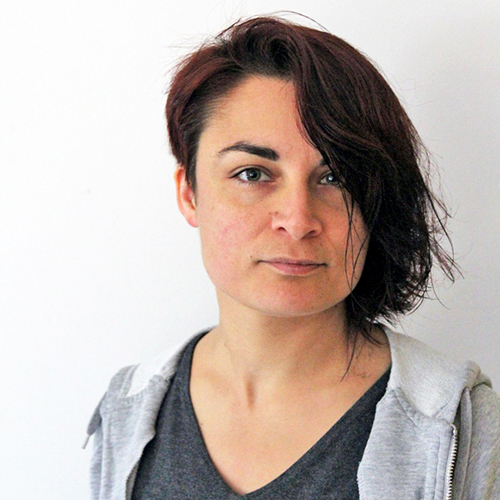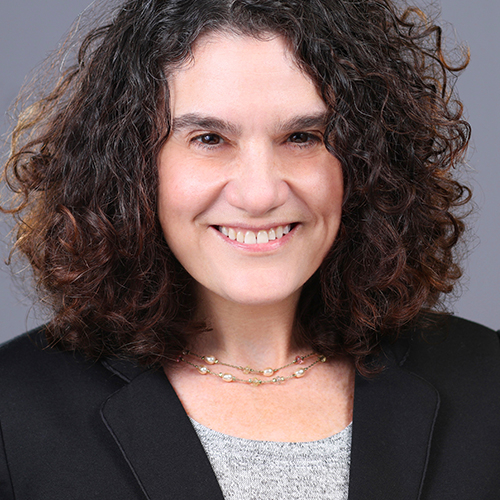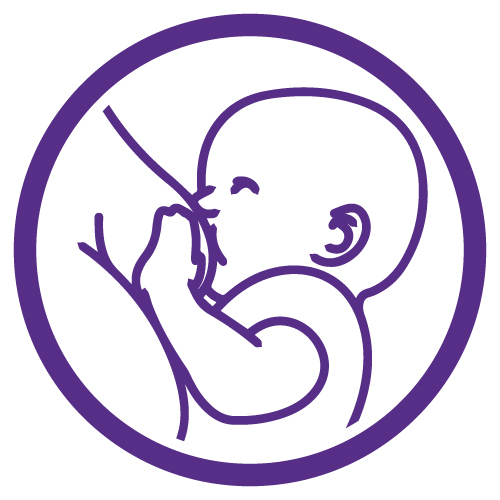 IBCLC Detailed Content Outline: Development and Nutrition / Infant Focused CERPs - Section I A
IBCLC Detailed Content Outline: Development and Nutrition / Infant Focused CERPs - Section I A
Access CERPs on Development and Nutrition / Infant for the IBCLC Detailed Content Outline recertification requirements. On-demand viewing of the latest Development and Nutrition / Infant focused IBCLC CERPs at your own pace.


Dr. Elizabeth Sharpe is a neonatal nurse practitioner and vascular access specialist with over 25 years of experience in Level II and Level III NICUs. She is an Associate Professor Clinical Nursing at The Ohio State University and Specialty Track Director of the Neonatal Nurse Practitioner Specialty in the Master of Science Graduate Nursing Program. Her unique contributions focus on education, vascular access, simulation, and harm prevention. She is the coauthor of the National Association of Neonatal Nurses (NANN) Guideline for Practice: Neonatal Peripherally Inserted Central Catheters, 3rd Edition, and has authored numerous publications. Dr. Sharpe has served two terms on the Board of Directors of the National Association of Neonatal Nurses (NANN.org) and currently serves as the NANN liaison to the Council of International Neonatal Nurses. She was honored to be named the 1st Janet Pettit Scholar by the Association for Vascular Access (avainfo.org) and a Fellow of the American Association of Nurse Practitioners and the National Academies of Practice.
Our special babies present unique challenges in vascular access. This presentation will highlight different methods of vascular access in neonates and infants including anatomy, therapy and patient characteristics. This will provide baseline information regarding guidelines for proper placement of umbilical catheters, surgically-inserted, peripherally inserted central catheters (PICC), midline and peripheral intravenous catheter. This is essential to building the knowledge base of new nurses and will update advanced neonatal nurses.

View Details / Enroll

Assisting Late Preterm Dyads Achieve Breastfeeding/Chestfeeding Success

Angela Lober has been an educator and clinician for over 19 years. She has been an Internationally Board Certified Lactation Consultant since 2005 providing evidence-based care within an academic medical center and within her community. Angela is the Director of the Arizona State University Lactation Education Programs offering on-line and academic elective on breastfeeding and lactation. She completed her PhD at Arizona State University's College of Nursing and Healthcare Innovation focused on the breastfeeding complexities of late preterm infants.
Late preterm infants struggle with feeding challenges. Due to the oscillating nature of breastfeeding progress in the late preterm population coupled with the innate issues of prematurity, families need support to navigate waters toward breastfeeding success. A model for evidence-based education and breastfeeding assessment will be presented to support infant development and empower mothers to achieve their breastfeeding goals.

Attachment and Neurodevelopmental Outcomes in Premature Infants: The Role of Interpersonal Neurobiology in the NICU

Kara Wahlin is a licensed marriage and family therapist and art therapist who resides in the Coachella Valley of southern California. After going through the preterm birth of her twin sons William and Elliott, and the subsequent loss of William, Kara made the promise to dedicate her clinical work to helping other families coping with the trauma and loss often wrought by the NICU experience. She developed the website NICU Healing in order to provide free information, couples and individual therapy, and online support to NICU families. Kara uses strengths-based, neuroloscientifically-informed and creative practices to empower her clients to picking up the pieces of their lives and moving forward with their new life stories. She speaks frequently at conferences discussing best clinical practices, and writes for her own as well as other blogs about new ways of coping with mental health issues that come up after traumatic experiences. In her free time, Kara and her son Elliott are art machines and expert hikers, and also spend their time at home with their menagerie of small animals.
Evidence has shown that attachment between a primary caregiver and their preterm infant can change the neurodevelopmental outcomes for the infant later in life. Attachment can be seen as a living organism between parent/caregiver and child, and with encouraged development and growth, the attachment relationship can have profound effects, even in the context of the most difficult of circumstances and medical diagnoses. The more NICU caregivers know how to encourage attachment, the likelier a family system will need less medical/psychological intervention after discharge from the hospital.

Automated Control of Inspired Oxygen…. Is it the Future of Oxygen Therapy in Preterm Infants?

Dr. Souvik Mitra is an Assistant Professor and neonatologist at the Division of Neonatal Perinatal Medicine, Department of Pediatrics, Dalhousie University, Halifax, Canada. He completed his medical school and pediatric residency from Calcutta Medical College, India. Dr Mitra went on to complete his neonatal fellowship at McMaster University, Hamilton, Canada and is currently pursuing his Masters in Clinical Epidemiology from the same institution. Cerebral oxygenation and cardiovascular physiology in premature infants are his primary clinical research interests. He also has extensive epidemiological research experience having published a number of systematic reviews and meta-analyses. He has shared his research through webinars across Canada and the United States as well as through platform presentations at various international conferences. He has special expertise in targeted neonatal echocardiography and is a member of the Pan-American Hemodynamics (TnECHO) Collaborative.
There is increasing evidence that optimizing time spent within targeted oxygen saturation limits improves clinical outcomes in premature infants. Recent randomized clinical trials show that preterm infants who spend more time above the target saturation range tend to have increased retinopathy of prematurity and bronchopulmonary dysplasia, while those infants who spend a considerable time below the target range tend to have more necrotizing enterocolitis and death. Hence it is imperative that we find out the best way to optimize oxygen saturation targeting in preterm infants. Education programs followed by implementation of oxygen titration guidelines for the bedside nursing staff have been shown to have some benefit. However, the ever-increasing NICU workload often makes it impossible for nurses to adhere to strict oxygen titration guidelines. Automated control of inspired oxygen may provide some respite to the nurses as this recent technology has not only been shown to reduce nursing workload but also to improve oxygen saturation targeting in preterm infants. This is an exciting new innovation which, with more refinement in technology and practice, has the potential of becoming the standard of NICU care in future.

View Details / Enroll

Babies Cry to Communicate, Not to Manipulate... Non-Medical Reasons for Crying: An Anthropological Approach

Katrien Nauwelaerts graduated as a prehistoric archaeologist in 2005. She's the mother of three breastfed children and the administrator of the Dutch breastfeeding-website Borstvoeding Aardig, https://borstvoeding.aardig.be. Katrien worked as a volunteer breastfeeding-counsellor, provincial coordinator and training manager for the Belgian breastfeeding organisation Borstvoeding vzw between 2010-2014. Up tot 2018 she was the founder and president of Aardig Leven vzw, a non profit ecological organisation. In 2013 she became an IBCLC. Since 2013 she's working as a lactation consultant at her own private practice Borstvoeding Aardig. She became a nutritionist and a herborist in 2014. Katrien shares her experiences and knowledge on lactation consulting as a public speaker since 2014.
Topic: Breastfeeding and The Use Of Herbs - [View Abstract]
Topic: Young Mothers and Breastfeeding in Belgium - [View Abstract]
There is scientific research that says that breastfeeding duration shortens when parents experience their baby as a baby who cries a lot.
There are all kinds of medical reasons why a baby is crying. Crying is a way of communication for a baby. It's a cry for help.
But what if there are no obvious medical reasons for a baby's crying behavior?
This lecture explains sociological and anthropological factors that can influence crying behavior in babies.
Sometimes parents have false expectations about parenting and baby behavior. Sometimes cultural assumptions make parents believe they have a crying baby when they actually haven't. And some cultural or anthropological parameters can strengthen the crying behaviour in a baby. Learn more about normal newborn crying behaviour and how to help parents understand their newborn.

View Details / Enroll

Babies With Suckling Dysfunction: Assessment and Coordination of Care

Leslie has been providing lactation support in Central New Jersey for over 18 years - as a La Leche League (LLL) leader since 2002, an IBCLC at Mercer County WIC from 2014 to 2016, and as a private practice IBCLC since 2011.
Leslie grew up in New York and New Jersey. She graduated from Cook College/Rutgers with a BS in Biochemistry, and from Rutgers University/UMDNJ with a PhD in Biochemistry and Molecular Biology. Leslie's difficulties with early breastfeeding, the help she received from LLL, and challenges with returning to work laid the foundation for her understanding of the importance of skilled and compassionate lactation and infant feeding support.
Topic: Untangling the Big Picture of Tongue-Tie Assessment - [View Abstract]
IBCLCs assess chest/breast and bottle feeding skills and infant’s oral and body anatomy, and the motions that contribute to, or inhibit, the process of feeding as well as post-feeding comfort (digestion and elimination for infant, breast comfort for parent). When infants present with feeding dysfunction, the root of the issue could be from a variety of sources - effects of in utero positioning, prematurity, effects of birth interventions, tight frenulum (ties), asymmetric/tense muscles/fascia, neurological/ reflexive issues, low/high muscular tone, or suckling discoordination, suck-swallow-breathe discoordination, laryngomalacia, compensations for low supply, cleft lip/palate, and more. IBCLCs help families navigate the differential assessment of feeding dysfunction, and at the same time support the family’s feeding and milk supply choices.
This presentation will examine the role of the IBCLC when suckling dysfunction is occurring - for example aiding with latch and bottle feeding, oral/body exercises, referrals for oral evaluations and/or bodywork, or help with frenotomy pre/post work if needed. IBCLCs adjust the care plan as the infant’s feeding skills and parents’ goals grow and change. Developing the skills to aid oral function, and coordinate with specialized practitioners to aid this process, is crucial in order to determine the best course of clinical care, meet the families needs, and allow for the best possible outcome.


Shondra Mattos is an IBCLC (Internationally Board-certified Lactation Consultant) and owner of a Location-independent lactation practice where she provides breastfeeding and infant feeding support to families countrywide.
Shondra finds the science of lactation fascinating, and as such, she has a passion for sharing her understanding of complex lactation subjects with her colleagues and aspiring lactation students. When she's not with clients, speaking, or teaching, she spends time with her husband and daughter in Fayetteville, NC.
Bryna is a lactation consultant, mentor, educator, and birth doula in the Pacific Northwestern United States. They are active in their community as an advocate for mutual aid, reproductive justice, and reduction in barriers to care. They also own and manage an inclusive private practice. As a member of both Queer and Neurodivergent communities, offering inclusive care on every level is very important to Bryna. Their vision is to offer information and tools to providers to build a community of comprehensive, concordant, and individualized care for all families in the perinatal period.
We propose a talk that outlines the anatomy and physiology of normal infant feeding. Our talk will cover the basic functions of infant muscle groups recruited for latching, sucking, swallowing, and drinking human or artificial milk. We believe that if lactation professionals understand normal physiology as it pertains to muscle groups, they will better be able to educate and help the families our profession serves. At the end of this talk, the lactation professional will be able to establish a baseline for normal muscle function when evaluating the breastfed infant. We will use multiple learning modalities to outline and explain the essentials of muscle function in the breastfed infant.

View Details / Enroll

Back to Birth: The Power of Primitive Reflexes to Rebuild Brain Foundations

Nikki is mum to 3 wonderful boys, one with significant physical disability. Diving deep into the world of disability, child development and neurobiology due to her son's Cerebral Palsy, Nikki learnt to look beyond standard protocols when seeking interventions for her family to find additional knowledge and understanding that can be incorporated with traditional approaches to enhance and personalise therapy and care. This approach ultimately led Nikki to discover the power of primitive reflex integration.
Nikki deeply believes that life and circumstances, no matter how entrenched they seem, can always be improved. She thoroughly enjoys the opportunity to work with families and individuals to realise the individuality of each family member and discover the increased health, development and ease that's achievable.
Nikki began her journey with Rhythmic Movement Training (RMT) in Melbourne in 2013 and was astounded with the positive changes such an easy and small intervention could make. She has since worked with adults and children, using RMT, to integrate retained primitive reflexes and to ease their associated challenges. She particularly enjoys working with children and delights in seeing them actively participate in the sessions and very quickly own and take control of their sessions. The profound improvements and changes they see and feel in their bodies continues to amaze her.
Nikki balances her RMT work with days in the classroom as a relief teacher, relieving across the years from Reception to Year 12. Being in the classroom is always a fascinating and enjoyable time assisting students and watching reflexes at work. Nikki is also fascinated in the transformative power of epigenetics and is a co-developer of ph360's Parenting360 Course.
In her play time, Nikki loves surfing, reading, pilates and running to keep her body feeling alive and moving and to keep life feeling manageable!
The primitive reflex system provides the very first foundational layer of development in the brain. Without reflexive movement to trigger brain development, the brain would not develop at all. As this development progresses, the activity of primitive reflexes in the body diminishes to the point that primitive reflexes are considered “integrated.” However, what happens when this doesn’t happen as designed and primitive reflexes are instead retained? Growing amounts of research are identifying the links between reflex retention and a wide variety of motor, learning, cognitive, physical, emotional and postural challenges.
This presentation examines some of the main primitive reflexes and explores what happens when the primitive reflex process is interrupted.
How is it interrupted? How do these interruptions manifest? And, most importantly, what can be done therapeutically to continue and support the primitive reflex integration process.

Best Practices to Support Breastfeeding in Neonatal Intensive Care

Kathie, an Associate Professor of Pediatrics, University of CT School of Medicine, is a neonatologist, member of the Human Milk Research Center at CT Children’s Medical Center, Hartford, CT, and graduated from Cornell University and Cornell University School of Medicine, completing postgraduate training in Pediatrics, Pediatric Nephrology and Neonatology at Children’s National Medical Center, George Washington University, Washington DC USA. In the inaugural group of physicians designated “Fellow of the Academy of Breastfeeding Medicine” (FABM), she served twelve years on the ABM Board of Directors, chaired the Protocol committee, and chaired the United States Breastfeeding Committee 2013-14. Elected to the International Lactation Consultant Association Board July 2014-17, she is a member of the American Academy of Pediatrics Section on Breastfeeding, serves as the AAP Connecticut Chapter Breastfeeding Coordinator since 2000, and Chairs the Baby-Friendly USA NICU Initiative. Initially founding Medical Director of the New England Mother's Milk Bank she is currently co-Medical Director of the Mothers' Milk Bank of the Western Great Lakes and has authored many chapters, monographs, peer-reviewed manuscripts, and ABM protocols. Her research centers on breastfeeding and the use of human milk in the NICU, cup feeding, donor milk/donor milk banking, the Baby-Friendly NICU, global maternal-child issues and the education of medical professionals. Lecturing extensively in the United States and abroad, she resides in Glastonbury, CT, her greatest accomplishment her 4 amazing young adults, 19 to 29 years of age.
Topic: The Science and Significance of Human Milk and Breastfeeding in Neonatal Intensive Care - [View Abstract]
There are many challenges faced by mothers, families and staff with the hospitalization of a sick or premature infant that affect lactation and breastfeeding. These include mother-infant separation, initiation and maintenance of lactation by milk expression, compromised milk production, barriers to infant-mother-parent bonding, the need for family-centered care, and the many issues related to continuity of care both during the hospitalization and between facilities and caregivers. We will explore current evidence concerning the support of mothers’ and families’ choice to transition from milk expression to breastfeeding of their infants in intensive care. While our knowledge of the importance of human milk has grown immensely with respect to nutrition, acute and chronic disease risk reduction and prevention, neurodevelopment, physiology, and the intestinal microbiome among others, there remains a gap in the translation of this knowledge into the practice of transition of human milk feeding to breastfeeding in many countries, regions and individual intensive care units/wards. It can be done—we will explore the evidence for how!

Beyond the Basics of Latch: Support Strategies for Helping Babies when the Basics Aren’t Enough

Melissa Cole, MS, IBCLC, RLC is a board certified lactation consultant, neonatal oral-motor assessment professional, and clinical herbalist in private practice. Melissa has been passionate about providing comprehensive, holistic lactation support and improving the level of clinical lactation skills for health professionals. She enjoys teaching, researching and writing about wellness and lactation-related topics. Melissa holds a bachelor of science degree in maternal child health and lactation consulting and her master’s work is in therapeutic, clinical herbalism. Melissa actively conducts research and collaborates with several lactation and health care professional associations. Before pursuing her current path, Melissa’s background was in education and cultural arts, which has served her well in her work as a lactation consultant and healthcare educator. She loves living, working and playing in the beautiful Pacific Northwest with her 3 children.
Topic: Beyond Fenugreek: An Individualized Approach to Dietary and Herbal Galactagogues - [View Abstract]
Topic: Beyond the Basics of Latch: Support Strategies for Helping Babies when the Basics Aren’t Enough - [View Abstract]
Topic: Common Infant Digestive Health Concerns and Useful Support Strategies - [View Abstract]
Topic: Connection and Care: Virtual Support for Tongue-Tied Infants - [View Abstract]
Topic: Feeding is Movement: Activities for Supporting Optimal Infant Oral Function - [View Abstract]
Topic: Infant Gut Health: Common Concerns and Useful Support Strategies - [View Abstract]
Topic: Infant Oral Assessment: Exploring Anatomy and Function Beyond the Frenulum - [View Abstract]
Topic: Low Milk Production Detective Work: Assessment and Care Plan Considerations - [View Abstract]
Topic: Nature’s Nurturers: Plant Medicine for Perinatal Mental Health - [View Abstract]
Topic: New Thoughts on Infant Pre and Post-Frenotomy Care - [View Abstract]
Topic: Placenta Medicine as a Galactogogue: Tradition or Trend? - [View Abstract]
Topic: Thinking Critically About the Use of Clinical Lactation Tools - [View Abstract]
Topic: Will It Hurt? Frenotomy Aftercare Strategies to Optimize Healing Outcomes for the Newborn - [View Abstract]
In a perfect world, every baby would latch beautifully right after delivery and breastfeed happily ever after. In reality what we often see is that most moms and babies need a little help to get breastfeeding off to a good start. Many dyads need a lot of help. And a few mother/baby pairs need a miracle to breastfeed successfully. How can we best help those tough cases? There are many reasons babies struggle to latch and feed well. Some issues may include structural issues, physical discomfort, respiratory concerns, medical issues, digestive issues, poor feeding tool choices, prematurity, etc. Many providers are frustrated when they are unable to help a dyad latch and feed successfully. This presentation will cover some reasons why babies struggle to latch and breastfeed well. We will go over cases that portray challenging situations and the assessment techniques and care plan strategies that helped. This session is designed to help providers implement critical thinking skills in order to think outside the box when it comes to difficult cases.

View Details / Enroll















